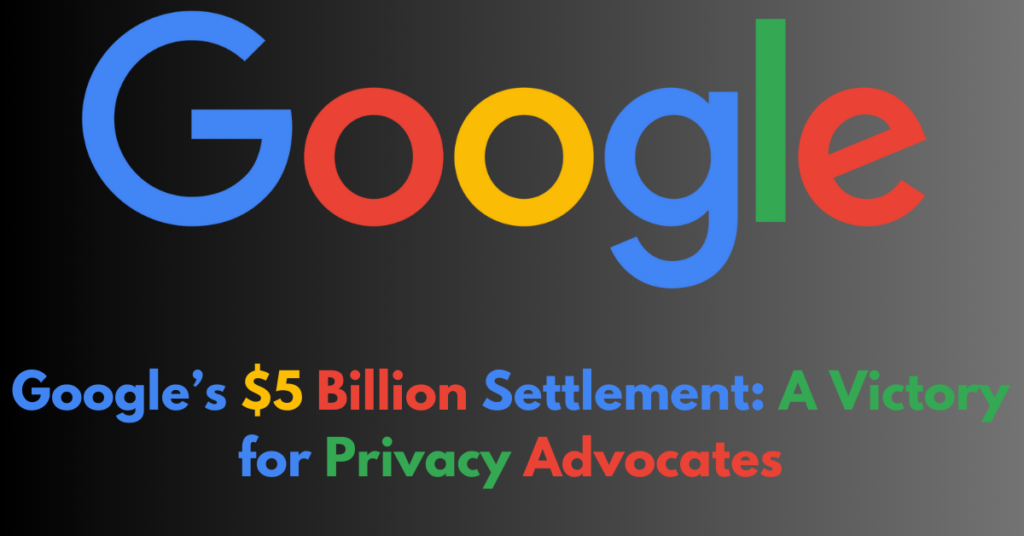Google’s $5 Billion Settlement: A Victory for Privacy Advocates
Google, which is part of Alphabet, has agreed to resolve a lawsuit accusing it of secretly monitoring the internet activities of millions of users who believed they were browsing privately. The lawsuit, covering millions of Google users since June 1, 2016, sought a minimum of $5,000 in damages per user for violating federal wire-tapping and California privacy laws. The specific terms of the settlement have not been disclosed yet.
The lawsuit claimed that Google, through its analytics, cookies, and apps, could track user activity even when the individuals used Google Chrome in “Incognito” mode or other browsers in “private” browsing mode. This allowed Google to amass a vast amount of information about users, including details about their friends, hobbies, favorite foods, shopping habits, and potentially embarrassing online searches.
The terms of the settlement have not been made public yet, but both sides’ lawyers have said that they have agreed to a binding term sheet through mediation. Google and the plaintiff’s lawyers have not yet said anything about the settlement.
Following the disclosure of a preliminary settlement by attorneys for Google and the consumers, US District Judge Yvonne Gonzalez Rogers in Oakland, California, halted the proposed class action trial on February 5, 2024.
This settlement marks a significant development in the ongoing discussion about online privacy. It emphasizes the importance of transparency and accountability in the digital age and highlights the necessity for companies to take proactive measures to safeguard their users’ privacy.
Users of Google’s Chrome browser have the option to search the internet in private mode without having their activity saved to the browser or device. However, the websites you visit can track usage with tools like Google Analytics.
Even though many users believed differently, Google claimed to have been transparent about the data it collected when users viewed it in private mode. The search engine claimed that site owners could “better evaluate the performance of their content, products, marketing, and more” with the assistance of search history collection, even in private viewing mode.



